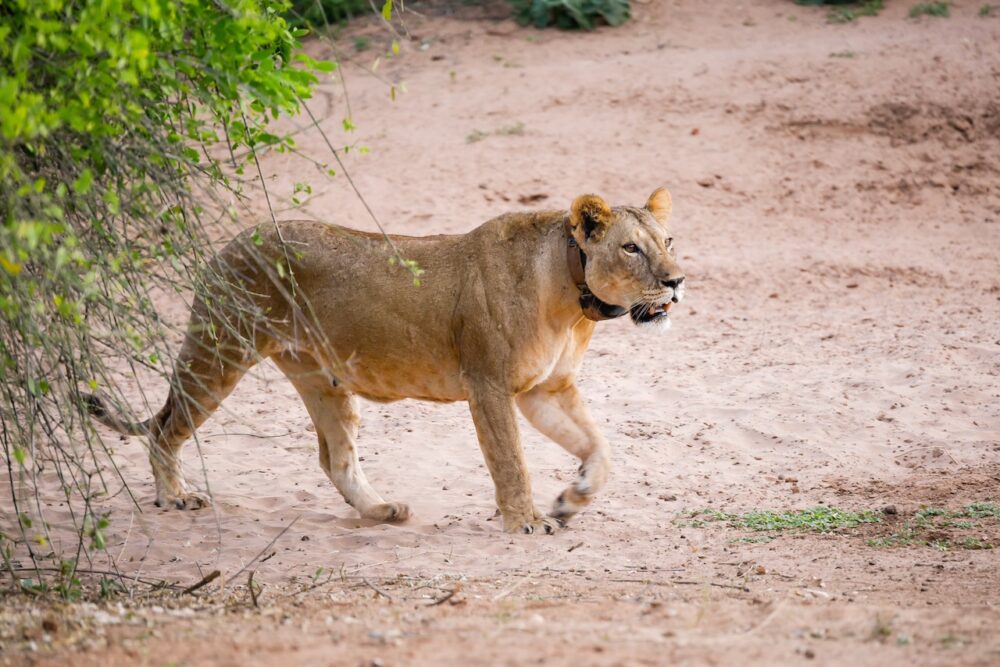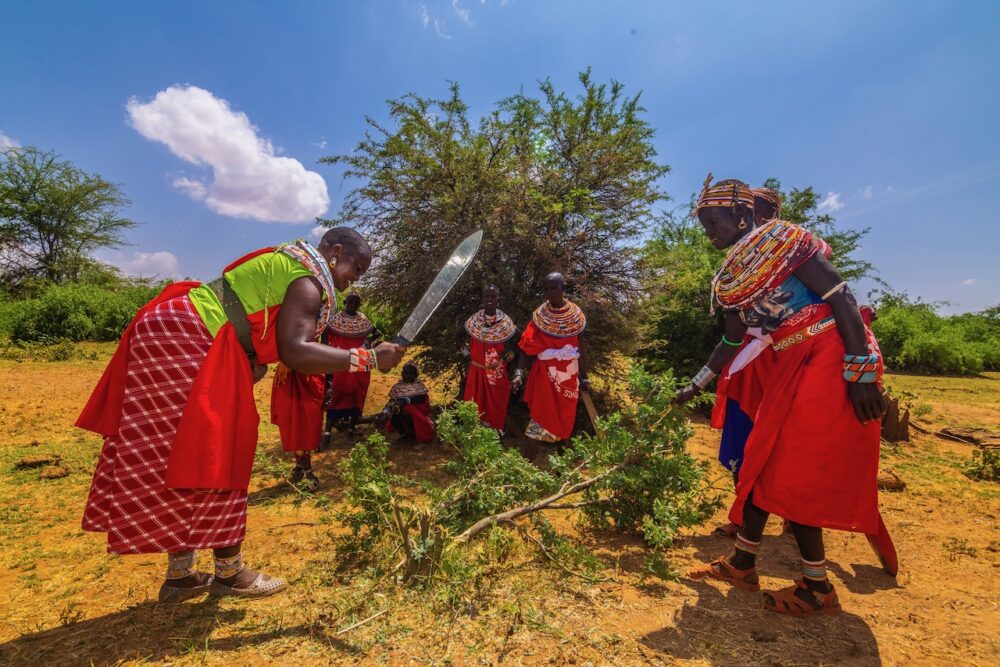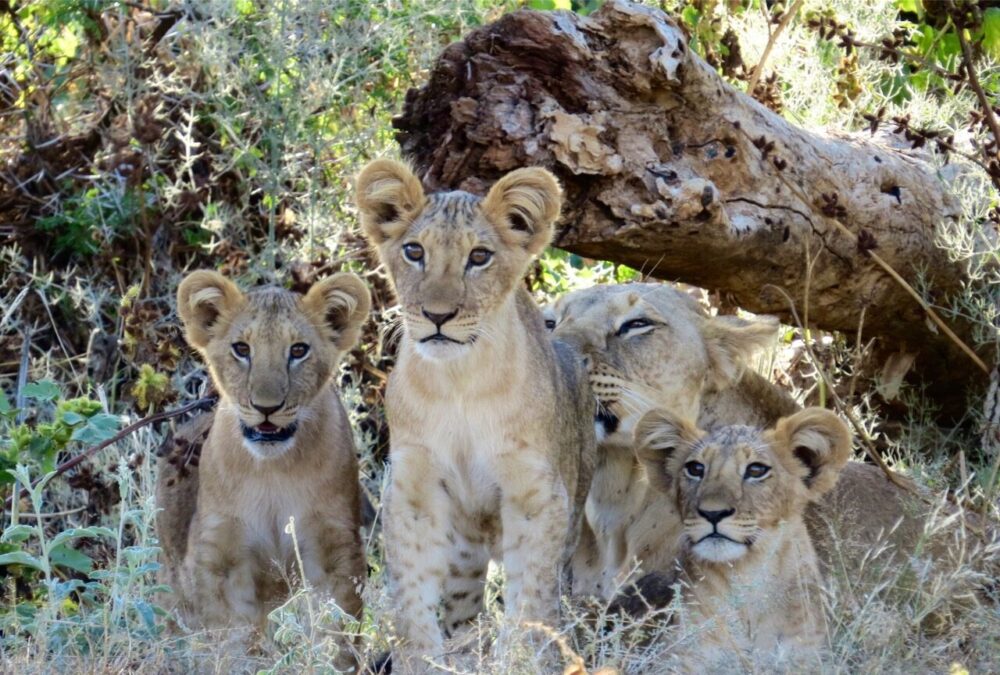Our team has been dealing with high levels of human-lion conflict in northern Kenya, putting lions at risk and causing significant problems for local communities and ranchers. Conflict occurs when lions attack peoples’ livestock in the villages or ranches at night or while out grazing during the day.
We have recorded 45 incidents of conflict and we estimate that our team has stopped the killing of lions 26 times. As a result, no lions were killed during this period.
The spike in conflict began in November with the arrival of the rains. During the dry season, lion’s natural prey (impalas, gazelles, etc.) congregate along water points like the Ewaso Nyiro River, making it easier for lions to hunt. When the rains arrive and vegetation is ample, the prey become stronger and disperse, making it more difficult for lions to hunt. As the lions follow prey, they encounter livestock, which is both abundant and an easy target. When lions attack livestock, which is the main livelihood for most pastoralists and many ranchers in our area, people may retaliate and attempt to kill lions.

When lions kill livestock like this cow, herders often retaliate and try to kill the lion.
Our core field team works with members of our Warrior Watch program to respond to such conflict incidents as fast as possible and prevent retaliatory killings of lions. Our team is trained in conflict transformation, which means they are skilled in calming tensions, demonstrating empathy for loss of livestock, and mitigating future problems. By having our Warriors stationed in their home villages across the landscape, we can increase communication and response to conflict issues.
Where we work on commercial ranches in Laikipia, several lions have been targeting cattle bomas at the onset of the rains. The normal increase in conflict we see at the start of the rains was exacerbated when the community took their weak livestock onto the ranches in search of grass. The lions got a taste for cattle and ‘learned’ to go for the ranch cattle. This has pushed people there to the end of their patience, but fortunately our team has been able to leverage their good relations and the pro-wildlife attitudes of the livestock owners to calm tensions, preventing loss of lions.
There was one particularly hard day that Jeneria, who leads our field team, recalls.
“One day, the lions killed camels in 5 locations so I was getting calls from all over. I raced to one area where Lengwe and his pride killed a camel and its baby at 4 in the morning because it had escaped from the boma.
Three warriors from the village came and they all had guns. I was sure Lengwe was going to be killed by these warriors, so I sat with them under a bush all day. I explained the camels weren’t properly attended. I said, ‘Have you ever heard of a camel being killed when herded by a proper person?’ They said, ‘No.’ I said then they can’t be angry at the lions. Even if Ewaso Lions stopped working with lions, the lions wont stop preying on livestock. That’s what has happened for centuries. They said ‘Yeah it’s true.’
While we were talking, Lengwe and his family came and started eating the remains of the camel in bright daylight right there by the village! But because I had talked with them, they were willing to leave the lions and come with me back to the village. I said ‘If I come back and a lion is missing, I know will know who is responsible.’”

Lengwe eating the remains of a camel caused tensions, which Jeneria was able to abate.
Jeneria stayed with them until late that night to make sure no one went after the lions. The next day, he went back to check, and found the lions had gone back into the Reserve. The warriors never went after the lions.
At the time of writing, we’ve been given a reprieve and there have not been major conflict issues in the past couple weeks. We continue to work proactively to prevent conflict through our community conservation programmes.




